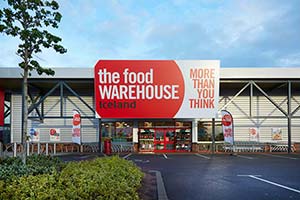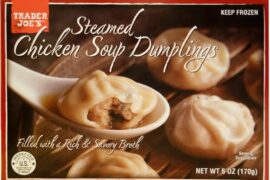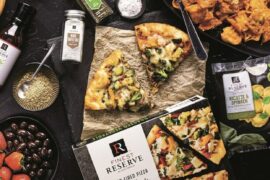The “green and clean” pro-environment campaigning of Iceland Foods continues to branch out, with the April 10 announcement that the United Kingdom’s leading frozen food specialist retailer will stop using palm oil as an ingredient in its entire own label food products range by the end of 2018.
In January the chain vowed to remove all plastic packaging from its private label food offerings by 2023. Some years ago it became the first British supermarket operator to ban artificial flavors and colors from own label products, as well as eliminate non-essential preservatives and prohibit GM ingredients.
 The palm oil phase-out project is well under way, as 50% of store brand products are now palm oil-free. Already this year, Iceland has brought out 100 new lines without palm oil, including the new summer range. By the start of 2019 the Deeside, Wales-headquartered company will have launched over 200 new items that do not contain palm oil.
The palm oil phase-out project is well under way, as 50% of store brand products are now palm oil-free. Already this year, Iceland has brought out 100 new lines without palm oil, including the new summer range. By the start of 2019 the Deeside, Wales-headquartered company will have launched over 200 new items that do not contain palm oil.
Growing demand for palm oil for use in food products, cosmetics and biodiesel is devastating tropical rainforests across Southeast Asia, according to the chain. In Indonesia and Malaysia, where expanding palm oil and wood pulp plantations are said to be the biggest driver of deforestation, many animal species are being threatened with extinction, including the already critically endangered orangutan.
Recently published studies show that Bornean orangutan numbers more than halved between 1999 and 2015, with only 70,000-100,000 of the great apes remaining in the wild. It has been calculated by the Ministry of Environment and Forests in Indonesia that the equivalent of 146 football pitches of rainforests are lost every hour in that country alone.
Deforestation also results in increased global carbon emissions. In 2014, Indonesia had the fourth largest greenhouse gas emissions, mostly as a result of deforestation, according to the World Resources Institute.
Palm oil is currently found in 50% of all supermarket products, ranging from bread and biscuits to breakfast cereal and soap. Despite this, 35% of consumers are reportedly unaware of what palm oil is. However, once informed about palm oil and its effects on the environment, 85% state that they do not believe ingredient should be used in food products, according to Iceland.
The frozen food specialist chain, which operates more than 900 stores across the UK, has made a decision to remove palm oil from its private labels products to demonstrate to the food industry at large that it is possible to reduce the demand for palm oil while seeking solutions that do not harm the world’s rainforest.
Just Saying ‘No’
 Iceland Group Chairman Malcolm Walker believes that removing palm oil from private label products sold by the frozen food retail specialist will help reduce destruction of tropical rainforests in Southeast Asia.Richard Walker, managing director of the Iceland Group, commented: “Until Iceland can guarantee palm oil is not causing rainforest destruction, we are simply saying ‘no to palm oil.’ We don’t believe there is such a thing as guaranteed ‘sustainable’ palm oil available in the mass market, so we are giving consumers a choice to say no to palm for the first time.”
Iceland Group Chairman Malcolm Walker believes that removing palm oil from private label products sold by the frozen food retail specialist will help reduce destruction of tropical rainforests in Southeast Asia.Richard Walker, managing director of the Iceland Group, commented: “Until Iceland can guarantee palm oil is not causing rainforest destruction, we are simply saying ‘no to palm oil.’ We don’t believe there is such a thing as guaranteed ‘sustainable’ palm oil available in the mass market, so we are giving consumers a choice to say no to palm for the first time.”
He continued: “Having recently been to Indonesia and seen the environmental devastation caused by expanding palm oil production first hand, I feel passionately about the importance of raising awareness of this issue – and I know many British consumers share my concern and want to have a real choice about what they buy. This journey has shown me that, currently, no major supermarket or food manufacturer can substantiate any claim that the palm oil they use is truly sustainable, as the damage being caused to the global environment and communities in Southeast Asia is just too extensive.”
The Iceland no palm oil pledge is that by the end of 2018, fully 100% of the supermarket’s own label food lines will contain no palm oil, thus reducing demand for palm oil by more than 500 tons per year.
The response from Iceland’s own label suppliers to the no palm oil campaign has been “incredibly enthusiastic,” according to Walker. Prior to work beginning of this initiative palm oil was present in 130 lines, accounting for approximately 10% of the company’s own label food.
Palm Oil Alternatives
This shift away from palm oil has been enabled due to a significant investment of £5 million from Iceland, There are a number of alternatives to palm oil that are not damaging the rainforest. These will vary depending on individual product requirements, meaning that there will be a mix of oils and fats involved. Alternatives will include sunflower oil, rapeseed oil and butter.





